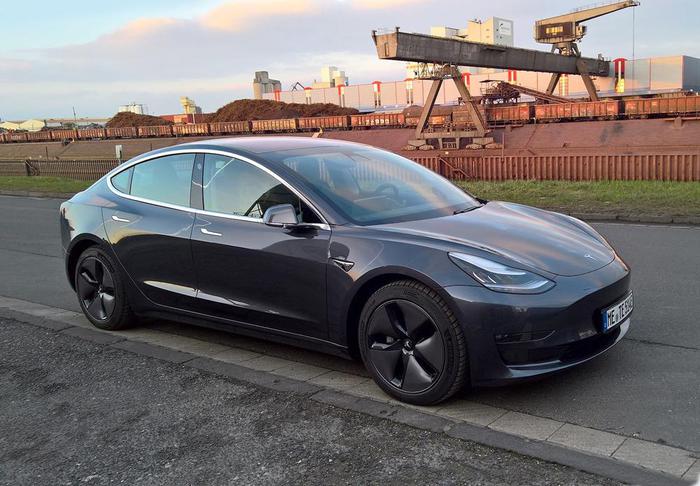Driving a Tesla Model 3 in Germany has a negative effect on the environment, in terms of CO2 emissions, greater than a turbodiesel car of similar size. This is what the French magazine AutoPlus has said that has taken over, updating it, a study that was released a few months ago by the independent German research organization IFO. It is undeniable that an electric car does not pollute during its use - reads the French magazine - and certainly does not do so with the engine, even if brakes and tires release dust and residues in the air.
However, to calculate the total pollution of the vehicle it is also necessary to measure the source that supplies the batteries and supplies the energy to the engine. In Germany, even if the total annual electricity production comes to 35.6% from renewable sources and 52.6% from fossil fuels, the complete life cycle of a Tesla Model 3 produces (according to IFO) between 156 and 181 g / km of CO2, against the 141 g / km of a Mercedes C220d. The calculation was carried out assuming an average CO2 emission factor of 0.55 kg / kWh for German electricity production, which indicates that the energy requirement of 15 kWh per 100 km of the Tesla Model 3 leads to 83 g / source km of CO2 in the current German mix.
But to this value, IFO emphasizes, must be added an additional emission - between 73 and 98 g / km - linked to the production and disposal of batteries, from which the aforementioned values of 156 -181 g / km are reached. IFO also specifies that according to the data of the European Environment Agency (2019), the intensity of CO2 emissions for electricity production in France is less than 0.100 kg / kWh, in Germany (as has been considered) is about 0.55 kg / kWh and in Poland about 0.7 kg / kWh.
The study also takes into consideration natural gas (methane) engines which in the sizing to consider for the comparison with the Tesla and the Mercedes involves emissions of 99 g / km of CO2. Even in the most favorable case of low CO2 emissions in the battery life cycle, electric car emissions are still 58% higher. Therefore - concludes the study - the internal combustion engine powered by methane seems to be a source of propulsion without rivals in terms of CO2 emissions and that beats all other alternatives.














